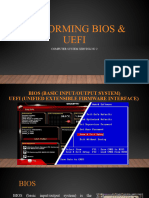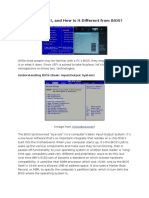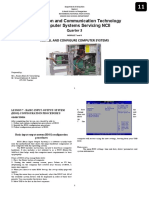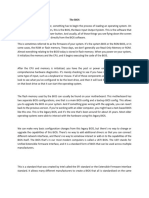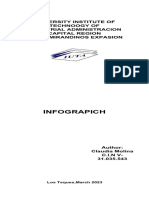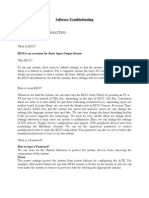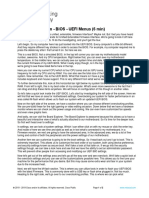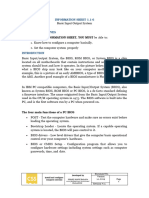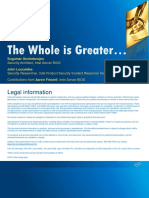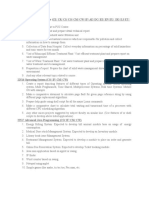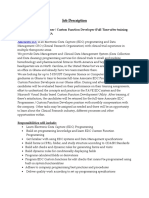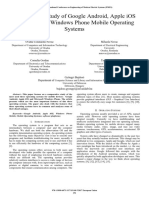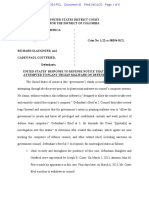0% found this document useful (0 votes)
27 views11 pages00 Introduction
The document outlines a course on advanced x86 BIOS and System Management Mode (SMM) internals, focusing on security and vulnerabilities. It introduces participants to BIOS technologies, chipset basics, and various attack vectors, while also emphasizing the importance of understanding and securing BIOS systems. The course aims to provide hands-on examples and forensic tools to analyze BIOS vulnerabilities and potential compromises.
Uploaded by
情纯Copyright
© © All Rights Reserved
We take content rights seriously. If you suspect this is your content, claim it here.
Available Formats
Download as PDF, TXT or read online on Scribd
0% found this document useful (0 votes)
27 views11 pages00 Introduction
The document outlines a course on advanced x86 BIOS and System Management Mode (SMM) internals, focusing on security and vulnerabilities. It introduces participants to BIOS technologies, chipset basics, and various attack vectors, while also emphasizing the importance of understanding and securing BIOS systems. The course aims to provide hands-on examples and forensic tools to analyze BIOS vulnerabilities and potential compromises.
Uploaded by
情纯Copyright
© © All Rights Reserved
We take content rights seriously. If you suspect this is your content, claim it here.
Available Formats
Download as PDF, TXT or read online on Scribd
/ 11




